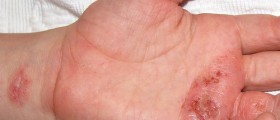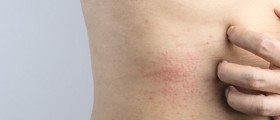
What is dermatitis?
Dermatitis is a term used to describe a number of skin conditions that involve inflammation of the skin. There are many types of dermatitis, the most common ones being seborrheic dermatitis and atopic dermatitis or eczema. Each type of dermatitis has its own characteristic symptoms, but most of them include swollen, red and itchy skin.
Dermatitis is not dangerous and it certainly is not life-threatening. However, it does cause a lot of discomfort, frustration and even embarrassment. It can be treated with a combination of medications and self-care steps, but it cal also be prevented, at least to a certain extent.
Prevention of dermatitis
Various agents, substances and environmental factors are considered causes or triggers of dermatitis and those should, naturally, be avoided as much as possible. Those factors and agents may include poison ivy and other irritant plants, air pollution, dirt, exposure to sun, chemical products, especially those used for home hygiene, and harsh cosmetic products like soaps, perfumes, lotions and such.
There are also certain triggers that can aggravate dermatitis. Those may include emotional or physical stress, harsh weather, especially with wind and sudden temperature changes, sweating, unhealthy lifestyle, with smoking, drinking and substance abuse.
In order to prevent dermatitis, it helps to avoid anything that may be irritating the skin, such as wool products, detergents and similar. If an irritating substance must be handled, it is recommended to do so while wearing non-latex gloves.
The skin should be protected from drying, since dry skin is more prone to dermatitis. It should be moisturized regularly, every day if possible, using mild, fragrance and color-free lotions. Bathing and showering should be cut down. It is not always necessary to shower every day. Also, hot water used for bathing or showering should be substituted with lukewarm water, which is much less drying.
After bathing or showering, it is necessary to dry the entire body, but carefully, without scrubbing, and using a soft cotton towel.
Exposure to sun, especially for prolonged periods, is another significant factors for dermatitis. When spending time in the sun, it is recommended to use sunscreen or sunblock products with a sun protection factor that is suitable for the complexion and skin type.
Diet plays a very important role in prevention of almost any health problem, and dermatitis is no exception. The risk of developing dermatitis can be reduced by eating balanced meals rich in all the essential vitamins, minerals, antioxidants, essential fatty acids, protein, and, of course, by drinking plenty of water.

















Your thoughts on this
Loading...